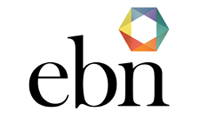
Recently I was talking to a contact about people “picking his brain”. He, let’s call him Fred, worked in social media and said he was often asked for advice. Another contact was saying he was always wary about sharing his knowledge because he thought it would enable people to do things themselves rather than paying for his services. I told the story about the advice I got from a very successful business owner when I was first starting out. He said, “Some people will spend money and some people won’t and you can’t tell from looking at them which one they are”.
From that I realised that some people would keep trying to pick your brain, but they would never pay for your services. This can be for several reasons. They may think:
- they can do it themselves, or
- they can’t spend the money, or
- why pay for something you can get for free.
I would say:
- no-one can do and know everything.
- This is a false economy because, while they are struggling with this, they could be getting and doing work.
- This is disrespectful.
Anyway, back to Fred.
Fred and I agreed that we were happy to give advice and information, but there came a time when people crossed a line and they had to be charged. The challenge was twofold:
- where was that line, and
- was everyone clear what each side of that line look like?
It is important to get those issues sorted at the beginning, before it becomes a problem. We also agreed that with some contacts the line may be more flexible, because we know them and know they won’t take advantage, or there might be an element of barter.
Coincidentally, later that week I was talking to a contact who is a very talented hairdresser. Let’s call her Freda. She was venting, because she had recently been contacted by someone through social media and asked for advice. The person had had her hair coloured by someone else and didn’t like the result, but didn’t want to tell the hairdresser who had done it (!). She had decided to do it herself, so contacted someone she used for advice.
Freda needed to vent because:
- The woman told her she had no intension of booking her.
- She had told her at the beginning, and several times during the conversation, that she would not give advice on products she had not used and for hair she had not tested.
- It was late Sunday night!
My suggestion was not to reply till she was in work, but she is young and seemed to be horrified by the idea of ignoring something she got via social media.
I realised that where the line was drawn was possibly different for different trades or professions. So, my question is where is your line? Mine is now quite fluid so here’s a start.
Here’s a free gift to you: my Top 20 networking tips. Just follow this link: ebn.uk.com and complete the form to receive your copy.
Have fun,
Glenys











Recent Comments